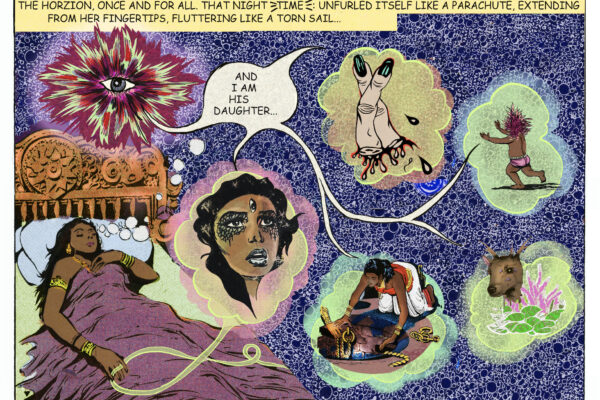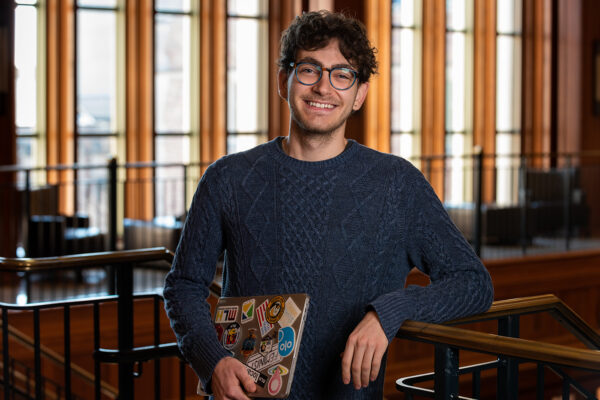‘Nicole Miller: A Sound, a Signal, the Circus’ at Mildred Lane Kemper Art Museum
The Mildred Lane Kemper Art Museum will present a major new commissioned project by San Diego-based artist and filmmaker Nicole Miller, opening March 25. Known for her evocative videos and multimedia installations, Miller frequently addresses themes such as subjectivity, self-representation, agency and race.
‘Chitra Ganesh: Dreaming in Multiverse’
The Mildred Lane Kemper Art Museum will present the first solo exhibition in the Midwest by Brooklyn, N.Y.-based artist Chitra Ganesh. In her multidisciplinary practice, Ganesh draws on Buddhist and Hindu iconography, science fiction, queer theory, comics, Surrealism, Bollywood posters and video games, combining them with her own imagery to present speculative visions of society in the past, present and future.
For children, young adults with recurrent AML, immunotherapy shows promise
Researchers at Washington University School of Medicine have shown, in a small clinical trial, that pre-activated natural killer cells can help some children and young adults with recurrent acute myeloid leukemia and few other treatment options.
Asthma may reduce risk of brain tumors — but how?
Asthma has been associated with a lowered risk of brain tumors, and researchers at Washington University School of Medicine now think they know why: Immune cells activated under conditions of asthma are less able to promote the growth of brain tumors.
Expanding the X-ray view of the universe
X-ray telescopes observe the most extreme and hottest objects in the universe. Physicists in Arts & Sciences at Washington University in St. Louis are playing key roles in the first dedicated X-ray polarimetry missions, including one that launched this month.
School of Medicine to expand Lipstein BJC Institute of Health building
The School of Medicine will begin construction in the spring on a six floor-expansion on top of the Steven & Susan Lipstein BJC Institute of Health building. The addition, estimated to cost $150 million, will include 160,000 square feet of state-of-the-art laboratory space.
It’s time to move conversation beyond abortion
Women of color are leading the reproductive justice movement, which expands the conversation to include the broader range of reproductive experiences, according to sociologist Zakiya Luna.
Research brings analog computers just one step from digital
Xuan “Silvia” Zhang’s lab at the McKelvey School of Engineering has reached a theoretical limit for efficiently converting analog data into digital bits in an emerging computer technology.
Class Acts: David Frankel
David Frankel, who is studying computer science at the McKelvey School of Engineering and women, gender and sexuality studies in Arts & Sciences, is leveraging his studies to create technology that serves the social good. Frankel will be among the 360 students who will participate in the December degree candidate recognition ceremony Dec. 11 at the Athletic Complex.
How do others help us regulate emotions?
Research from the lab of Renee J. Thompson in Arts & Sciences investigates how we reach out to others to help regulate our emotions.
View More Stories









